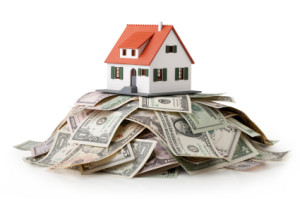A couple of weeks ago I wrote The 6 Worst Types of Real Estate Investments
that covered the types of properties an investor should avoid. Today I
will cover what makes up a really good real estate investment.
 In
general you probably want to earn wealth on real estate based on risk
you are taking, while minimizing the amount of time you need to spend
attending to the property. In order to accomplish this, you need to make
some smart choices upfront when buying investment property. Your goal
should be to strive to get as close as possible on as many of these
optimal scenarios as possible:
In
general you probably want to earn wealth on real estate based on risk
you are taking, while minimizing the amount of time you need to spend
attending to the property. In order to accomplish this, you need to make
some smart choices upfront when buying investment property. Your goal
should be to strive to get as close as possible on as many of these
optimal scenarios as possible:
Pays a Fair Cash-on-Cash Return
When you buy property you are taking money out of your liquid
financial assets – stocks, bonds, CDs – and investing it into a very
illiquid asset – real estate. You were earning a rate of return on your
financial assets, such as 4 percent or 6 percent, and you should strive
to earn a fair cash-on-cash rate of return on your real estate. To do
this, you need to pro forma your deals and buy cash flow-positive
properties that earn you decent returns – not those prize properties
that are negative, negative, negative. For more guidance on this, see Smart Investing – A Tale of Two Townhomes.
It’s the nice, boring, wholly owned, in good shape, cash flow-positive properties that are the best investments. They are out there for your picking, but it’s not as simple as finding a property on the MLS and buying it.
You need to do some hard work, research, read up, and make smart, educated decisions to acquire the best real estate investments!
 In
general you probably want to earn wealth on real estate based on risk
you are taking, while minimizing the amount of time you need to spend
attending to the property. In order to accomplish this, you need to make
some smart choices upfront when buying investment property. Your goal
should be to strive to get as close as possible on as many of these
optimal scenarios as possible:
In
general you probably want to earn wealth on real estate based on risk
you are taking, while minimizing the amount of time you need to spend
attending to the property. In order to accomplish this, you need to make
some smart choices upfront when buying investment property. Your goal
should be to strive to get as close as possible on as many of these
optimal scenarios as possible:
Pays a Fair Cash-on-Cash Return
When you buy property you are taking money out of your liquid
financial assets – stocks, bonds, CDs – and investing it into a very
illiquid asset – real estate. You were earning a rate of return on your
financial assets, such as 4 percent or 6 percent, and you should strive
to earn a fair cash-on-cash rate of return on your real estate. To do
this, you need to pro forma your deals and buy cash flow-positive
properties that earn you decent returns – not those prize properties
that are negative, negative, negative. For more guidance on this, see Smart Investing – A Tale of Two Townhomes.Isn’t Too Risky an Investment
All real estate is extremely high risk. Development of real estate, land, Tenant-In-Common (TIC) investments, private real estate funds, fixer uppers, etc., all have much higher risk profiles than just simply buying a nice established cash flow investment property. In many of those investments, you will never see a dime of your money again because there are just so many things that can go wrong! So if you want to own real estate, consider simply taking fee simple title in your own name – or an entity you wholly own – to the properties you purchase. In addition, you must do the proper due diligence, analyze, test, review reports, etc., to make a lower risk real estate decision.Doesn’t Require a Lot of Time or Managing
Some properties just require way too much time and management to make them smart investments. Examples include vacation rentals, low quality properties in bad areas, college rentals, etc. Nice boring properties rented for as long as possible to decent credit profile tenants seem to take the least time to manage. In addition, treating your tenants fairly and with respect goes a long way towards keeping good relations with them; and reducing your hassles when there is an issue you need to address. And believe me — there will be issues!It’s the nice, boring, wholly owned, in good shape, cash flow-positive properties that are the best investments. They are out there for your picking, but it’s not as simple as finding a property on the MLS and buying it.
You need to do some hard work, research, read up, and make smart, educated decisions to acquire the best real estate investments!
